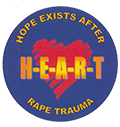When did the word victim become a word of shame? More precisely, why do we attach shame
to being a victim when rape or sexual assault is the crime that precedes the word victim? If we
are robbed, we are victims of theft. If someone copies our signature without our knowledge, we
are victims of forgery. If someone pilfers our money, we are victims of embezzlement. If
someone runs into our vehicle and we get hurt, we are victims of a car accident. In fact, if we
feel that we are being wrongly accused for the cause of that car accident we may even say,
“Wait a minute! I am the victim here!” The label of victim then becomes a declaration of
innocence. No shame, no guilt and no responsibility.
I started giving a lot of thought to the conundrum of this word victim when, after several
presentations, I was corrected, by some well-meaning professionals, because I had referred to
myself as a victim of sexual assault. I was told that there was power to be found in the word
survivor. As I was mulling this over, I remembered that the emergency room professionals,
who were involved in executing my rape kit, also told me that I was a not a victim, I was a
survivor. Being a people pleaser and knowing that anyone, especially a professional, knows
more than I do, I tried survivor on for size and fit. It didn’t fit at all, in fact, it was right
uncomfortable and I found that it held no super power, especially in the first years of my
healing process. Using survivor gave me pause as I began to think about what that word looked
like. I thought of my dear friend who celebrated surviving breast cancer. Then, I thought of
survivors who are hooked up to all kinds of machinery that feed, breathe and pump their heart
for them. I related more to the latter, because I found no reason to celebrate my survivorship.
There were many days I only took in enough food to keep my stomach from growling, I took a
breath because my body did so without my permission, and my heart continued to beat but there
was no real life in it. If this was being a survivor, then I was not sure I wanted it.
As I continued in my battle between victim and survivor, I realized that all survivors have to be
a victim of something before they can be a survivor. Being a survivor cannot change the fact
that I am a rape victim. In fact, I needed to admit and understand my victimization before
wanting to move to being a survivor. Being a victim is being the innocent party, having no fault,
being blameless in the action that took place. I could not skip this step. For me, it was essential
to look at and understand that I was a victim of rape because that gave the tremendous hurt a
name and reason for being so prevalent in my life. Working with women who have been
victims of sexual assault I have found that I am not the only one who had a hard time moving
from survivor to healing because they were never given an opportunity to identify with being a
victim. It is an important step that sexual assault victims have been encouraged to skip.
Denying our victimization does not does not empower us. Truth empower us as victims. Some
of the biggest “aha moments” I have witnessed when working with rape victims are when they
finally shamelessly say, “Wait a minute, I am the victim here!” Now they know from what they
have survived and can work toward healing. Just something to think about.
